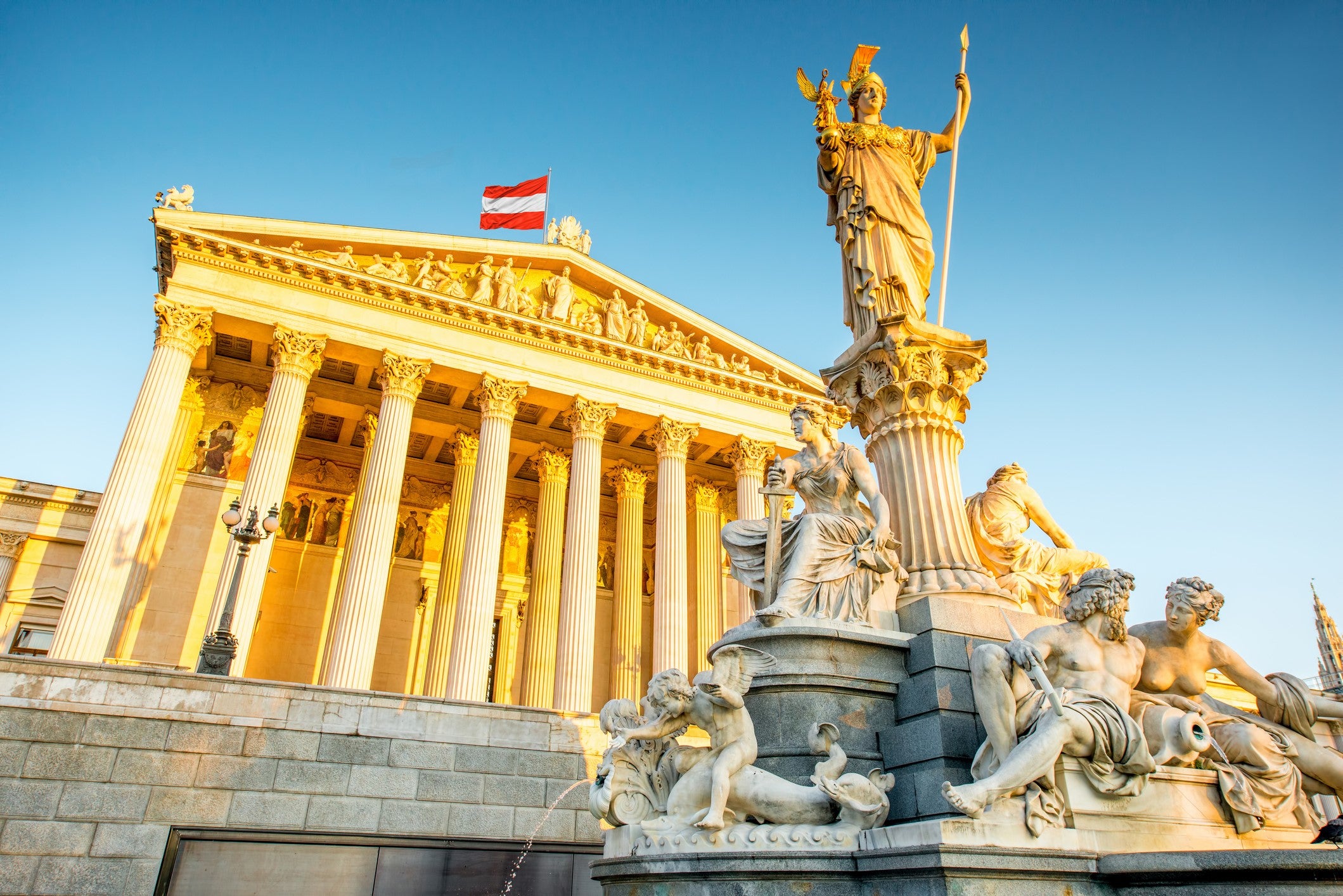This website uses cookies so that we can provide you with the best user experience possible. Cookie information is stored in your browser and performs functions such as recognising you when you return to our website and helping our team to understand which sections of the website you find most interesting and useful.

Vienna will reward those who opt to travel by public transport, bike or on foot over going by car.
The Austrian capital is launching a new app on 26 February that will track users’ mode of transport and calculate the CO2 saved compared to driving.
Users will collect “culture tokens” when they travel car-free, with 20kg of CO2 saved granting travellers one token.
Tokens can be exchanged for free tickets to four cultural venues in the city: a museum, an art exhibition space, a theatre and a concert hall.
Initially the app will be trialled by just 1,000 users for six months. If successful, the scheme will be rolled out to the entire capital when the trial is over.
Created with Sketch.
Created with Sketch.
1/20 19. Hamburg, Germany
Joint 19th
Getty
2/20 19. Ottawa, Canada
Joint 19th
Getty
3/20 18. Luxembourg
Getty
4/20 17. Melbourne, Australia
Getty
5/20 16. Toronto, Canada
Alamy
6/20 15. Wellington, New Zealand
Getty
7/20 14. Bern, Switzerland
Getty
8/20 13. Berlin, Germany
Getty
9/20 11. Amsterdam, Netherlands
Joint 11th
Getty
10/20 11. Sydney, Australia
Joint 11th
Getty
11/20 10. Basel, Switzerland
Getty
12/20 9. Geneva, Switzerland
Getty
13/20 8. Copenhagen, Denmark
Getty
14/20 7. Frankfurt, Germany
Getty
15/20 6. Düsseldorf, Germany
Getty
16/20 2. Auckland, New Zealand
Joint 2nd
Getty
17/20 2. Munich, Germany
Joint 2nd
Getty
18/20 2. Vancouver, Canada
Joint 2nd
Getty
19/20 2. Zurich, Switzerland
Joint 2nd
Getty
20/20 1. Vienna, Austria
Getty
1/20 19. Hamburg, Germany
Joint 19th
Getty
2/20 19. Ottawa, Canada
Joint 19th
Getty
3/20 18. Luxembourg
Getty
4/20 17. Melbourne, Australia
Getty
5/20 16. Toronto, Canada
Alamy
6/20 15. Wellington, New Zealand
Getty
7/20 14. Bern, Switzerland
Getty
8/20 13. Berlin, Germany
Getty
9/20 11. Amsterdam, Netherlands
Joint 11th
Getty
10/20 11. Sydney, Australia
Joint 11th
Getty
11/20 10. Basel, Switzerland
Getty
12/20 9. Geneva, Switzerland
Getty
13/20 8. Copenhagen, Denmark
Getty
14/20 7. Frankfurt, Germany
Getty
15/20 6. Düsseldorf, Germany
Getty
16/20 2. Auckland, New Zealand
Joint 2nd
Getty
17/20 2. Munich, Germany
Joint 2nd
Getty
18/20 2. Vancouver, Canada
Joint 2nd
Getty
19/20 2. Zurich, Switzerland
Joint 2nd
Getty
20/20 1. Vienna, Austria
Getty
“We want to reward CO2 reduction with a cultural experience,” Vienna city council member Peter Hanke told local press.
In 2019, Vienna was ranked the most liveable city in the world for the 10th year in a row.
The Austrian capital topped the Mercer Quality of Living Survey, whose 2019 ranking was dominated by European cities. Thirteen out of the world’s 20 best places to live were in Europe.
Mercer’s annual index ranks 231 cities around the world on factors including political stability, crime, personal freedoms, healthcare, education, housing, recreation and public transport.
Vienna is known for its famous coffee houses, the soaring single spire of St Stephen’s Cathedral and the grandiose facade of Schönbrunn Palace.
But the real draw is the way in which the city is constantly evolving and striving to make its residents’ lives better, according to local resident Natalie Marchant.
“Quality of life is a core focus for local and national government alike,” she wrote in a piece for The Independent. “The city has excellent infrastructure and social care, health and education systems, but is also committed to the cultural wellbeing of its residents.”



 Africana55 Radio
Africana55 Radio 

